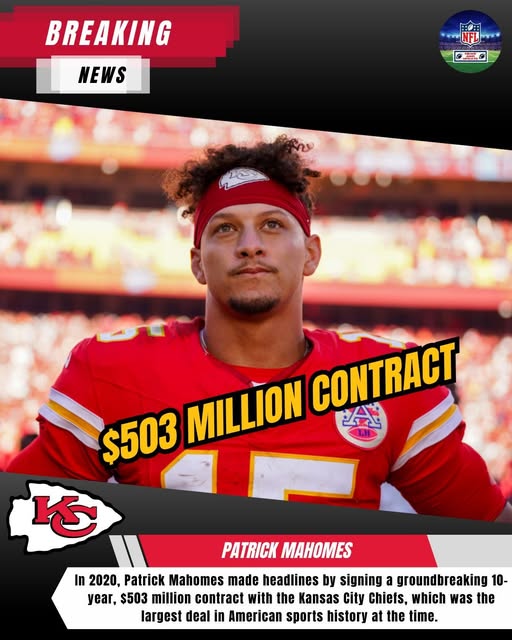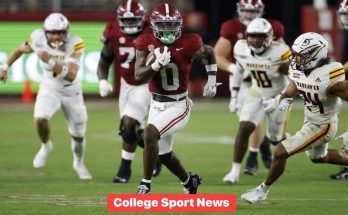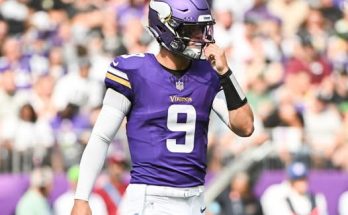In 2020, the sports world was stunned when Patrick Mahomes, the superstar quarterback of the Kansas City Chiefs, signed a historic 10-year, $503 million contract extension. At the time, it was the largest deal in American sports history, solidifying Mahomes as not only the face of the NFL but also as a trailblazer in athlete compensation. The contract was more than just a financial milestone—it represented a shift in how elite athletes, particularly franchise quarterbacks, were valued in professional sports.
Patrick Mahomes’ rise to superstardom was meteoric. After being drafted 10th overall by the Chiefs in 2017, he took over as the starting quarterback in 2018 and immediately transformed the franchise. That season, he threw for 5,097 yards and 50 touchdowns, earning NFL MVP honors and leading the Chiefs to the AFC Championship Game. The following year, he guided Kansas City to a Super Bowl LIV victory, earning Super Bowl MVP honors in the process. By the time negotiations for his contract extension began, Mahomes had already established himself as one of the most electrifying players in the league.
The Chiefs, fully aware of his generational talent, were determined to lock him into a long-term deal. In July 2020, they reached an agreement on a 10-year extension worth up to $503 million, including $477 million in guarantee mechanisms and incentives. The deal dwarfed previous NFL contracts and even surpassed the largest deals in MLB and NBA history at the time.
Mahomes’ contract was groundbreaking for several reasons. First, its sheer size was unprecedented in American sports. Before this, the largest contracts belonged to MLB stars like Mike Trout (12 years, $426.5 million with the Angels) and NBA icons such as Russell Westbrook (5 years, $206.8 million with the Thunder). Mahomes’ deal reset the market, proving that NFL players—especially quarterbacks—could command contracts on par with or even exceeding those in other major leagues.
Second, the structure of the contract was innovative. Unlike traditional NFL deals, which often feature heavy backloading or non-guaranteed money, Mahomes’ agreement included rolling guarantees, ensuring financial security while giving the Chiefs flexibility with the salary cap. The deal also included a no-trade clause and provisions for Mahomes to have input on roster decisions, further cementing his status as the franchise cornerstone.
Third, the contract signaled a shift in how teams viewed quarterback investments. In the past, even elite QBs rarely received deals spanning a decade due to the physical demands of the position and the risk of injury. However, Mahomes’ unique skill set, youth (he was just 24 when he signed the extension), and durability made him a rare exception. The Chiefs were betting that his arm talent, football IQ, and leadership would keep them in championship contention for years to come—a bet that has paid off handsomely.
Mahomes’ deal sent shockwaves through the NFL, immediately raising the bar for quarterback contracts. In the years following his extension, other star QBs like Josh Allen, Dak Prescott, and Deshaun Watson signed massive deals, with Watson’s fully guaranteed $230 million contract with the Cleveland Browns in 2022 further pushing the boundaries of guaranteed money in the league.
The contract also highlighted the growing financial power of the NFL. Despite being a physically brutal sport with non-guaranteed contracts as the norm, the league’s revenue growth allowed teams to invest unprecedented sums in franchise players. Mahomes’ deal demonstrated that elite quarterbacks—the most valuable assets in football—could now command contracts comparable to those in leagues with fully guaranteed deals like the NBA and MLB.
Since signing his record-breaking extension, Mahomes has only reinforced why he was worth the investment. He led the Chiefs to two more Super Bowl appearances (winning another in 2023), collected another Super Bowl MVP, and continued to put up staggering statistical performances. His ability to perform under pressure, extend plays, and elevate his teammates has kept Kansas City as perennial contenders.
Beyond his on-field success, Mahomes has become a global icon, endorsing major brands like State Farm, Adidas, and Oakley. His marketability, combined with his on-field dominance, has made him one of the most influential athletes in the world. The Chiefs’ investment wasn’t just in a quarterback—it was in a once-in-a-generation talent who could define an era of football.
Patrick Mahomes’ $503 million contract was more than just a paycheck—it was a statement. It redefined the financial landscape of the NFL, set a new standard for quarterback valuations, and proved that the right player could command unprecedented security and influence within a franchise. As Mahomes continues to add to his legacy, the deal will be remembered as a turning point in sports economics, showcasing the immense value of a transcendent athlete in modern professional sports.
For the Chiefs, the investment has already yielded championships and sustained success. For the NFL, it marked the beginning of a new era where superstar quarterbacks could demand—and receive—contracts worthy of their impact. And for Mahomes himself, the deal was a well-deserved reward for a player who has revolutionized the game.



